Everything You Need to Know About the College Admissions Scandal
March 14, 2019
[Eds. note added April 18, 2019: The Coat of Arms would like to clarify that the Menlo alum Johnny Wilson, class of 2014, mentioned in this story is different from another Menlo alum John D. Wilson, also class of 2014. Both boys played water polo at Menlo, and both their fathers are named John Wilson. John D. Wilson went on to play water polo at Johns Hopkins University and is not connected to the college admissions scandal.]
On Tuesday, March 12, 2019, news broke across the country exposing a huge national college admission scandal, involving dozens of Bay Area families and other wealthy families nationwide, according to The New York Times.
This college admission scandal is centered around one man: William “Rick” Singer of Newport Beach, Calif. According to the United States Attorney’s Office of Massachusetts, Singer served as the CEO of the Key Worldwide Foundation (KWF) – a non-profit corporation that he established as an alleged charity. Singer created this charity as a façade for his whole scheme so clients were able to transfer money through the charity and there would be less worry of suspicious action, according to the United States Attorney’s Office of Massachusetts.
Moreover, he started a for-profit college counseling service, Edge College and Career Network, which served as a bridge between schools’ admissions offices, and wealthy families who are willing to do anything to get their child into a top university, according to the same office. From 2011 to 2019, Singer was conspiring with parents, coaches, university athletic administrators and even ACT and SAT test administers, according to The New York Times. According to the United States Attorney’s Office of Massachusetts Singer relied on bribes and other fraudulent activities to facilitate the admission of these students into many colleges, including Yale, Stanford, University of Southern California (USC), Wake Forest University, University of California, Los Angeles (UCLA), University of Texas at Austin, and Georgetown University, as reported by the United States Attorney’s Office of Massachusetts’ public list of defendants.
The New York Times said that Singer used two main methods of aiding the admission of these students: cheating on college entrance exams and fraudulently disguising students as recruited athletes.
According to the US Attorney’s Office of Massachusetts, in order to cheat on the standardized tests, Singer instructed the majority of parents to seek extended time for their children. This included having the children falsify learning disabilities in order to get the appropriate medical documentation necessary to qualify for extended time. Once the extra time was granted to students, Singer instructed the parents to change the locations of the students’ tests to either a public school in Houston, Texas or a private college preparatory school in West Hollywood, Calif. At those testing centers, Singer initiated personal connections with two SAT administrators, Nikki Williams and Igor Dvorskiy. Both Williams and Dvorskiy accepted the bribes of $10,000 per test in return for aiding with the cheating scheme.
By accepting the $10,000, Williams and Dvorskiy agreed to allow a third party, Mark Riddell who is a counselor at a private school in Bradenton, Fla., to help the students. Riddell would either take the exam for the students or correct the students’ answers after they completed the exam. Riddell received $10,000 per test as well as compensation for his work. Singer’s clients would pay him between $15,000 and $75,000 per exam with payment wired through KWF in order to get the services previously described, as stated by US Attorney’s Office of Massachusetts report.
Singer also bribed university athletic coaches and administrators to facilitate admissions of students, regardless of their athletic capabilities. In his testimony, Singer described this method as using a “side door” to get the students into college.
The amount parents were paying Singer accumulated to roughly $25,000,000 to bribe the coaches and university administrators to designate their children as supposed athletic recruits, thus aiding the students with admissions into these universities. In return, Singer funeled these payments to programs which were solely controlled and organized by the athletic coaches. The coaches then designated the children as recruited athletes, even if the student had never even attempted to play the sport. Singer also made personal bribes to a majority of the coaches, according to US Attorney’s Office of Massachusetts.
John Wilson, the founder and CEO of a private equity and real estate development firm, took advantage of this opportunity and paid Singer to bribe coaches in aid of his son’s application. Wilson has been charged with conspiracy to commit mail fraud and honest services mail fraud, the United States Attorney’s Office of Massachusetts’ public list of defendants. Wilson’s son, Johnny Wilson, was a Menlo student who graduated in 2014. Johnny was recruited to USC for men’s water polo, which is one of the top programs in the country. Wilson had previously played water polo for Menlo and Stanford Water Polo club, according to the USC men’s water polo website. The USC men’s water polo coach, Jovan Vavic, was bribed to recruit Johnny as an athlete and has since been fired and indicted, according to NBC.
In addition to bribing coaches and administrators, Singer would assign employees of KWF to create fake athletic profiles for students which were then submitted to the colleges in support of their application. Profiles included fake honors that the students supposedly received from their high schools or high school league, along with elite teams that the students allegedly played on. Some parents even sent in staged photos of their kids playing the sport, or altered images of other children playing the sport, as maintained by US Attorney’s Office.
The 33 parents, 13 coaches and administrators, two standardized test administrators, one counselor and Singer are looking at large possible ramifications. Not only did all of these people participate in bribery and fraud, but–due to the way the money was being transferred–they were all committing tax fraud, as stated by the US Attorney’s Office.
Singer was utilizing the façade of KWF to conceal the nature and the source of the money he was then turning around and using to bribe multitudes of people. In 2013, Singer allegedly agreed with certain clients that he would be willing to disguise their bribe payments as charitable contributions to KWF. In doing so, this allowed the clients to deduct the bribes from their federal income tax. In order to commit to this charade, Singer went as far as mailing letters from the KWF to clients expressing the charity’s gratitude and thanking them for their sizeable donations, as publicized by the US Attorney’s Office.
Many clients filed personal tax returns that falsely reported the payment to the KWF as charitable donations. By doing so, the clients were officially commiting tax fraud, as stated by US Attorney’s Office.
The gravity of this college admission scandal is reflected in the amount of people being charged and indicted. Singer has officially plead guilty to this 25 million dollar scam in a Boston federal court on charges of racketeering conspiracy, money laundering conspiracy, conspiracy to defraud the United States and obstruction of justice. His sentencing is scheduled for June 19, 2019, but for now has been released on a $500,000 unsecured bond. Riddel is being charged on account of conspiracy to commit mail fraud and honest services mail fraud, along with conspiracy to commit money laundering. Currently, he is holding onto a waiver or indictment and plea to information hearing which is set for April 12, 2019, according to the US Attorney’s Office public list of defendants.
Along with the key players involved in Singer’s company and bribery, clients who bought into Singer’s bribery are facing serious repercussions. Among the 50 people charged, there were two famous television stars: Felicity Huffman, best known for her role on the television show “Desperate Housewives,” and Lori Loughlin, best known for being “Becky” on the television sitcom “Full House,” as reported by NBC.
Huffman was charged on account of conspiracy to commit mail fraud and honest services mail fraud. She has made her initial appearance in federal court and was released on a $250,000 bond and will appear again in federal court in Boston on March 29, 2019. Loughlin was charged on the same account, but is instead planning to self-surrender on March 13, 2019 in Los Angeles, after being in Canada on a work related trip stated by the US Attorney’s Office public list of defendants.
Loughlin was involved in the scandal in attempts to benefit her daughter, Olivia Jade Giannulli. Giannulli is currently enrolled at USC and was admitted to the school on the false pretences that she was a competitive crew athlete. Loughlin and her husband paid roughly $500,000 in order to get Singer’s help to aid Jade in admission into USC, as claimed by the US Attorney’s Office public list of defendants. Since the false pretences of her acceptance has been exposed to the public, Giannulli has received an extraordinary amount of hate comments through Instagram and online comments on her Youtube.
Though this scandal involves people nationwide, there are roughly 12 people involved in the surrounding Menlo area, ranging from coaches to wealthy business leaders, according to the United States Attorney’s Office of Massachusetts’ public list of defendants. One family involved was previously in the Menlo community.
Only a few miles down the road, at Stanford University, the former sailing coach John Vandemoer was charged with racketeering conspiracy and plead guilty to all accounts in Boston on March 12, 2019, as stated on the United States Attorney’s Office of Massachusetts’ public list of defendants. . Vandemoer has been released on personal recognizance for the time being, but his sentencing is scheduled for June 12, 2019.
And not even a mile down the road, at Sacred Heart Prep (SHP), there is a family who took part in Singer’s facilitation of admission. Marci Palatella, mother of Gino Palatella ‘19, is a long time donor to SHP, and there is even a field named after the family. She is the CEO of liquor distribution company Preservation Distillery in Kentucky. Palatella took advantage of Singer’s connections in attempts to ease her family’s college admissions, but has now been charged with conspiracy to commit mail fraud and honest services mail fraud.
Along with the Palatellas, another SHP family was involved with Singer’s fraudulent activities. Elizabeth and Manuel Henriquez’s two daughters graduated from SHP in 2016 and 2018. When applying to college, the family utilized Singer’s scheming ways to aid the girls in getting into their dream schools: Georgetown and Northwestern. Both parents self-surrendered on March 12, 2019, appeared in federal court and were released on $500,000 bonds each, according to the US Attorney’s Office public list of defendants.
There are several more Menlo-Atherton High School and SHP families involved with Singer’s college admissions scheme. As more information is released regarding this scandal, The Coat of Arms will continue to update our audience on relevant information.



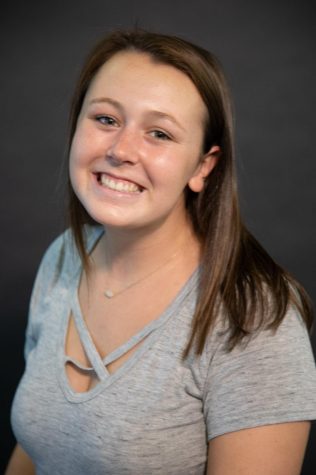

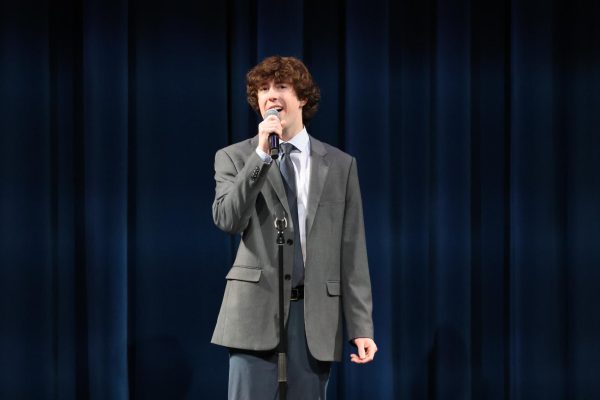
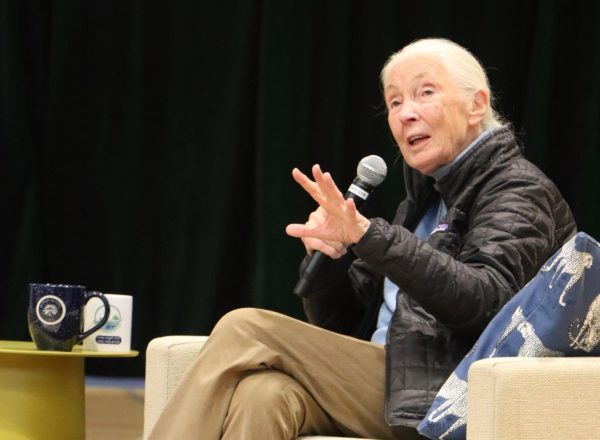
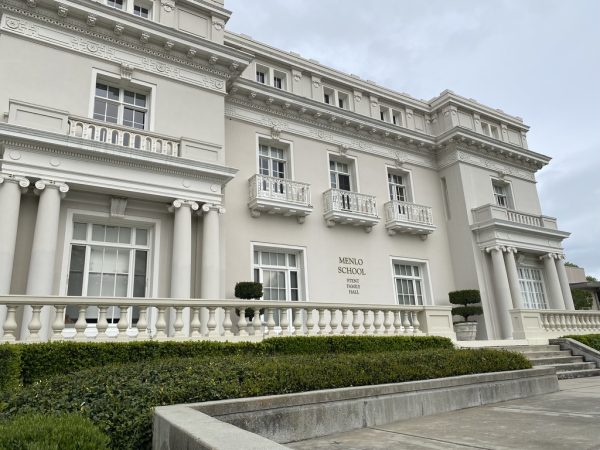

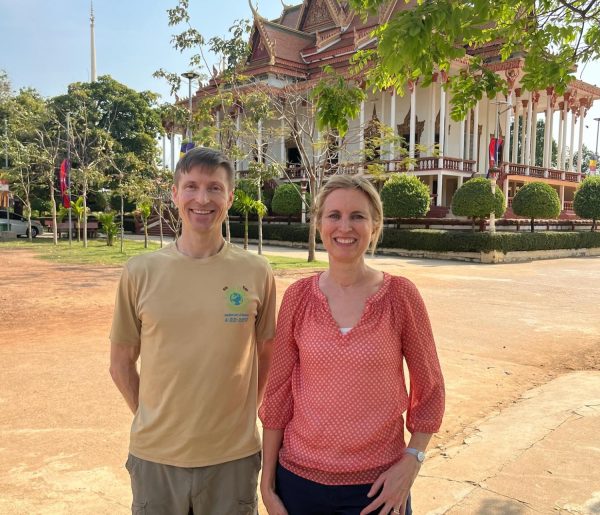




Gillian Bressie • Mar 14, 2019 at 10:40 am
Very well done!! Proud of y’all 🙂
Alice Wilson • Mar 14, 2019 at 8:17 am
Please note that John Wilson (also a 2014 Menlo grad and brother of Grace, Kathryn and Claire) is different from Johnny Wilson. John Wilson also played water polo for Menlo and Stanford water Polo, went on to Johns Hopkins University where he graduated with a degree in computer science and was a 3-time all American and holds the school’s record as goalie. His father is also John, mother Alice, not to be confused with the other Wilson family.